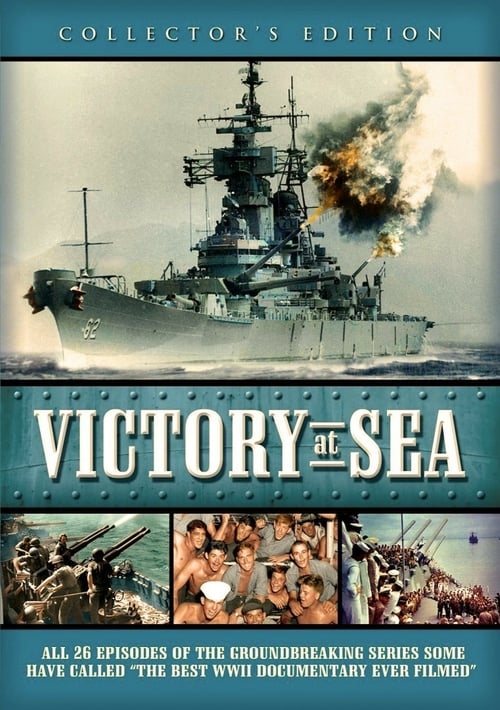-
Episode 1
DESIGN FOR WAR: Battle of the Atlantic, 1939-1941 -
Episode 2
THE PACIFIC BOILS OVER: Pearl Harbor, December 7, 1941 -
Episode 3
SEALING THE BREACH: Anti-submarine warfare, 1941-1943 -
Episode 4
MIDWAY IS EAST: Japanese victories & the Midway Battle -
Episode 5
MEDITERRANEAN MOSAIC: Gibraltar, Allied & enemy fleets, Malta -
Episode 6
GUADALCANAL -
Episode 7
RINGS AROUND RABAUL: Struggle for the Solomon Islands -
Episode 8
MARE NOSTRUM: Mediterranean Command, 1940-1942 -
Episode 9
SEA AND SAND: Invasion of North Africa, 1942-1943 -
Episode 10
BENEATH THE SOUTHERN CROSS: War in the south Atlantic -
Episode 11
THE MAGNETIC NORTH: War from Murmansk to Alaska -
Episode 12
THE CONQUEST OF MICRONESIA: Carrier warfare--Gilberts and Marshalls -
Episode 13
MELANESIAN NIGHTMARE: New Guinea campaign -
Episode 14
ROMAN RENAISSANCE: Sicily and the Italian campaign -
Episode 15
D-DAY: Normandy -
Episode 16
KILLERS AND THE KILL: Victory in the Atlantic, 1943-1945 -
Episode 17
THE TURKEY SHOOT: Conquest of the Marianas -
Episode 18
TWO IF BY SEA: Peleliu and Angaur -
Episode 19
BATTLE FOR LEYTE GULF: Sea battle for Leyte Gulf -
Episode 20
RETURN OF THE ALLIES: Liberation of the Philippines -
Episode 21
FULL FATHOM FIVE: U.S. submarines -
Episode 22
THE FATE OF EUROPE: Black Sea, south of France, surrender -
Episode 23
TARGET SURIBACHI: Iwo Jima -
Episode 24
THE ROAD TO MANDALAY: China, Burma, India, and Indian Ocean -
Episode 25
SUICIDE FOR GLORY: Okinawa -
Episode 26
DESIGN FOR PEACE: Surrender of Japan & aftermath of war
Victory at Sea 1952
Victory at Sea is a documentary television series about naval warfare during World War II that was originally broadcast by NBC in the USA in 1952–1953. It was condensed into a film in 1954. Excerpts from the music soundtrack, by Richard Rodgers and Robert Russell Bennett, were re-recorded and sold as record albums. The original TV broadcasts comprised 26 half-hour segments—Sunday afternoons at 3pm in most markets—starting October 26, 1952 and ending May 3, 1953. The series, which won an Emmy award in 1954 as "best public affairs program", played an important part in establishing historic "compilation" documentaries as a viable television genre. Over 13,000 hours of footage gathered from US, British, German and Japanese navies during World War II were perused in the making of these compelling episodes.
